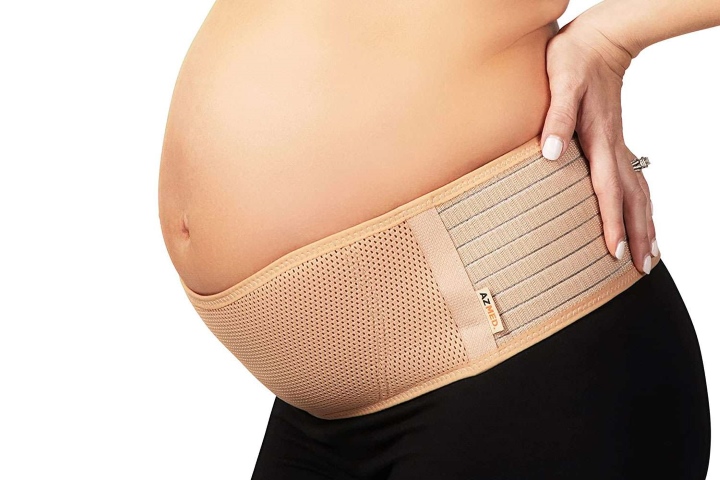Belly bands, also called abdominal binders, are designed to support the lower back and abdomen during pregnancy and aid the body after giving birth. These flexible support garments may provide many benefits to active women who are pregnant, especially during the second and third trimesters, and to those who recently gave birth.
In This Article:
- Benefits of Wearing a Belly Band after Your Pregnancy
- Which are the Best Belly Bands to Wear?
- How can I Choose?
Top 11 Benefits of Wearing a Belly Bands after Your Pregnancy
Belly Bands Help Decrease Body Pain
Wearing a belly band during and after pregnancy can help support your lower back during activities, which can result in decreased pain overall.
The Belly Band Keeps the Abdominal Muscles Together
Supports your abdominal muscles and can aid with diastasis recti, a condition where the abdominals remain separated after your pregnancy.
Aids with Lower Back Pain and Posture
Belly bands can provide external cues to your body to allow proper posture. By supporting the lower back and abdomen, belly bands encourage correct posture and prevent overextension of the lower back.
Alleviates the Pain and Pressure Associated with Undergoing a C-Section Incision
Post pregnancy belly bands provide better support and align the abdomen, provide light compression and take the pressure off a cesarean incision that will hurt after giving birth.
Helps to Reduce Swelling
Swelling is a buildup of excess fluids and metabolic wastes that surround a damaged area to prevent further damage and belly bands help provide massage-like compressions to the abdominal area to relax it.
Helps You Get Back in Shape
A belly wrap will help provide a smoother appearance under clothes, similar to shapewear (but this won’t bring back your pre-pregnancy body).
Belly Bands Provide Gentle Compression
The gentle compression of a belly band can help support the uterus, keep it in place and reduce discomfort from movement during physical activity.
Note: Too much compression on the abdomen can impair blood circulation, cause negative effects on blood pressure and also contribute to heartburn and indigestion.
Improves Core Strength Faster
Postpartum belly bands help to exercise abdominal muscles by keeping the muscles in place (since they’ve been stretched out of position due to pregnancy and birth).
Reduces Chances of Getting Joint Issues
Since belly band-aid in keeping muscles together and supporting the body, they also reduce the chances of getting joint issues such as Sacroiliac (SI) or Round Ligament joint problems.
Allows you to Safely Engage in Exercise and Various Other Activities
Exercise increases muscle toning and endurance and thus decreases the chances of hypertension, depression, and diabetes. Many women are unable to exercise or continue working during and post-pregnancy due to pain and discomfort. Wearing a belly band can help decrease your discomfort and allow assistance in daily activities.
Reduces the Chances of Hip Pain Later on in Life
The band fits well on your hips and can keep your hips in a comfortable position post giving birth since your hips would be loose. This, therefore, avoids Pelvic Girdle Pain (PGP), a condition that occurs when the ligaments that keep your bones aligned to become a little too loose during pregnancy, destabilizing the pelvic joints and triggering pain.
Which are the Best Belly Bands to Wear?
These are the best-rated belly bands to wear post giving birth. These are diverse in colours, styles, fabric breathability and stretchability.
- Mamaway Nano Bamboo Postnatal Support Belly Band
- Belly Bandit Original Belly Wrap
- Bellefit Corset
- UpSpring Shrinkx Postpartum Belly Wrap
- Chongerfei 3-in-1 Belly Wrap
- Ingrid & Isabel Bellaband
- Belly Bandit B.F.F. Belly Wrap
- TriRain 3-in-1 Postpartum Support
How can I Choose?
Under the doctor’s approval, post-pregnancy belly bands can be worn immediately after giving birth. Several belly wrap manufacturers suggest wearing one for around5 to 7 hours each day, for up to six to eight weeks post-pregnancy to receive the full benefits. There are several styles, with varying fabric types, colours, stretchability, and comfort. It is recommended to avoid waist trainers and corsets which are made of stiffer materials and are usually less about healing and more about appearance.
Sources:
https://www.ncbi.nlm.nih.gov/pubmed/19490291
